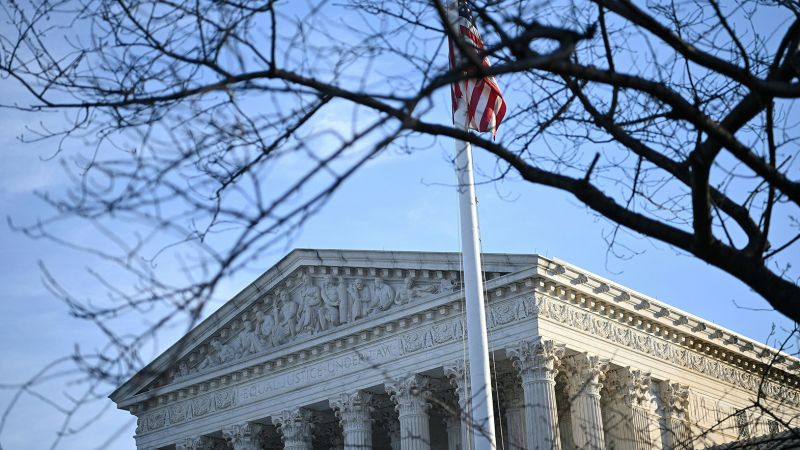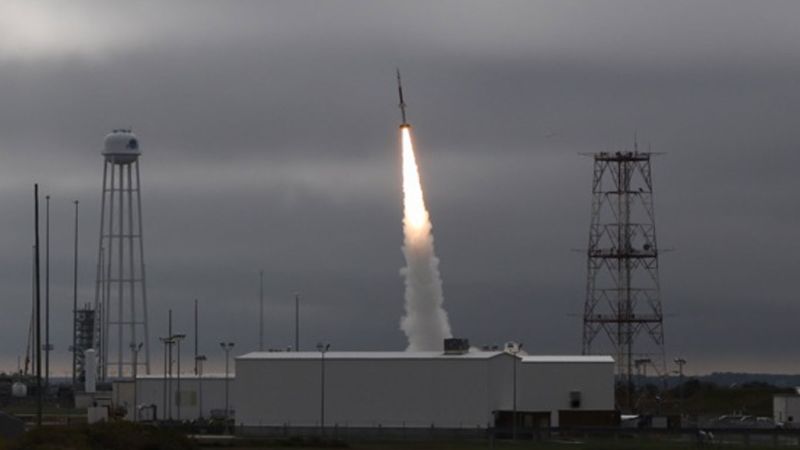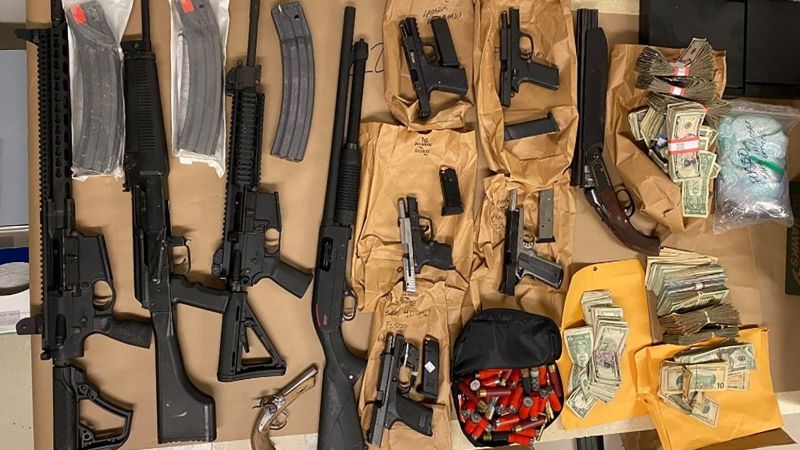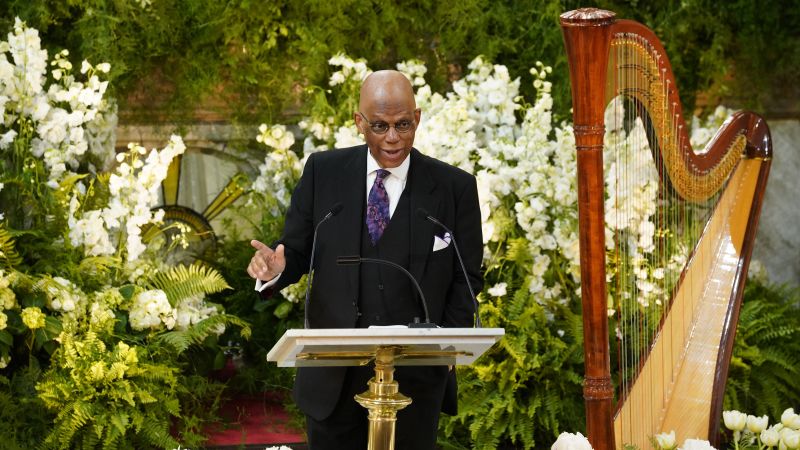Justice Department asks Supreme Court to reject legal theory pushed by Trump supporters

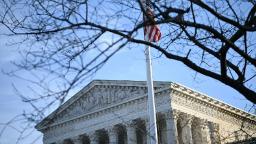
CNN
—
The Biden administration urged the Supreme Court on Wednesday to reject a legal theory pushed by supporters of former President Donald Trump in the effort to overturn the 2020 presidential election that could change the future of elections.
The after-hours filling from the Justice Department on the so-called independent state legislature doctrine, at issue in the case, comes less than two weeks from November’s midterm elections and ahead of December 7 arguments in the dispute.
Wednesday marked a deadline for “friend of the court briefs” from critics of the theory.
Supporters of the theory say that state legislatures should be able to set rules in federal elections without being held in check by state constitutions either through interpretation by state courts or by the functioning of commissions created under state constitutional reforms.
Voting rights groups fear that if the court were to side with supporters of the doctrine, it could lead to the ability of rogue state legislators to act unchecked when it comes to rules concerning federal elections – and fundamentally change the landscape of election law.
Solicitor General Elizabeth Prelogar, leaning on historical tradition to appeal to the more conservative members of the court, argued in the new filing that “more than two centuries of practice confirms that state legislatures are subject to state constitutional constraints” when they exercise their authority under the Constitution.
Democrats expect that even before the high court resolves the dispute this term, Republicans will cite the theory in legal challenges around the midterms.
Marc Elias, a seasoned election litigator and top Democratic lawyer, said he expects Republicans to rely on the theory in election challenges in the coming weeks.
“We have seen a sharp increase in litigation from Republicans heading into the midterm elections, and a surprising number of these lawsuits involve Independent State Legislature claims,” he said in an interview with CNN Wednesday night.
Calling it the Republicans’ latest “litigation obsession,” Elias said the theory has “no place in our election jurisprudence.”
“It is important that the court slam the door on this fringe theory and recognize the vital role of judicial review in our democratic system,” Elias said.
On the surface, the case before the justices presents a redistricting dispute out of North Carolina involving a lower court decision that invalidated the state’s congressional map. The court struck the map – calling it an illegal partisan gerrymander – and replaced it with a court-drawn map more favorable to Democrats.
Republican legislators from North Carolina are now asking the justices to reverse the lower court. They point to the Elections Clause of the Constitution that provides that rules governing the “manner of elections” must be prescribed in each state legislature.
Under the theory, they argue, state legislatures should be able to set rules with no interference from the courts.
Traditionally, legislatures have set ground rules for conducting an election, but have not acted alone or with the final word. Processes set in place have been subject to intervention by election administrators and state courts.
But the strictest reading of the independent state legislature theory says that state courts, when it comes to federal elections, must stay out.
The majority of the North Carolina Supreme Court, in ruling against the lawmakers, said that legislators do not have unlimited power to draw electoral maps. The state court acknowledged that redistricting is primarily delegated to the legislature but said it must be performed in “conformity with the State Constitution.”
The Republican lawmakers appealed to the US Supreme Court, arguing in court papers that the “text of the Constitution directly answers the question presented in this case.” The Elections Clause provides “unambiguous language” concerning the manner of federal elections and makes clear that the rules will be drawn by the legislatures.
Lawyer John Eastman, who served as a key architect of the push to overturn election results for Trump, has filed a sweeping amicus brief asking the justices to adopt the theory, even though it lay mostly dormant until after the 2020 election. Lawyers for the Republican National Committee scaled back on some of Eastman’s arguments, but they, too, want the justices to adopt a version of the theory.
Other conservatives are critical of the theory.
Retired Republican federal judge J. Michael Luttig is serving as co-counsel for the voting rights group, for example. Several other conservatives – including retired Judge Thomas Griffith, former Missouri Sen. John Danforth, former Deputy Attorney General Larry Thompson, among others – weighed in with a friend of the court brief supporting the groups.
In an amicus brief, they acknowledged that the current Supreme Court case may not impact actions taken after the election with respect to presidential electors. But they feared that if the Supreme Court emboldens state lawmakers in the voting rules case at hand, it could eventually open the door to new challenges to post-election results.
Unless the Supreme Court resolves the issue now, they also said, it could trigger more lawsuits in 2024 echoing the post-2020 election chaos.
Richard Bernstein, a lawyer for the conservatives who penned the brief, said that if the court were to adopt an “overreading” of the Elections Clause, the nation would face waves of federal election litigation every two years.
“If the Supreme Court undermines state courts in this case, the justices will be emboldening both state legislatures and losing candidates to try to steal future elections,” he said.
Lawyers for the Brennan Center for Justice at New York University School of Law referred to the Independent State Legislature theory as “fringe” in a brief supporting the voting rights groups and argued that hundreds of state election laws and policies could be vulnerable if the court were to adopt a strict reading of the doctrine. The rules include topics as diverse as precinct boundary-setting, voter registration, polling place siting, standards for testing election equipment, chain of ballot custody and vote counting processes.
“To avoid this turmoil, the Court need only endorse the status quo in all 50 states for the last 200 years and affirm the decision below,” the brief said.
Additionally, former California Republican Gov. Arnold Schwarzenegger – a long-time critic of what he calls the “pernicious effects of partisan gerrymanders” – weighed in against the theory. His lawyers said the doctrine “would upset this Court’s longstanding precedent upholding States’ checks and balances on the exercise of legislative power for congressional redistricting – through popular referenda, gubernatorial vetoes, and independent redistricting commissions.”
On Twitter, he was more blunt.
“You have to be polite at SCOTUS,” he wrote. “But here are my unfiltered thoughts: Frankly, this theory is nuts.”


